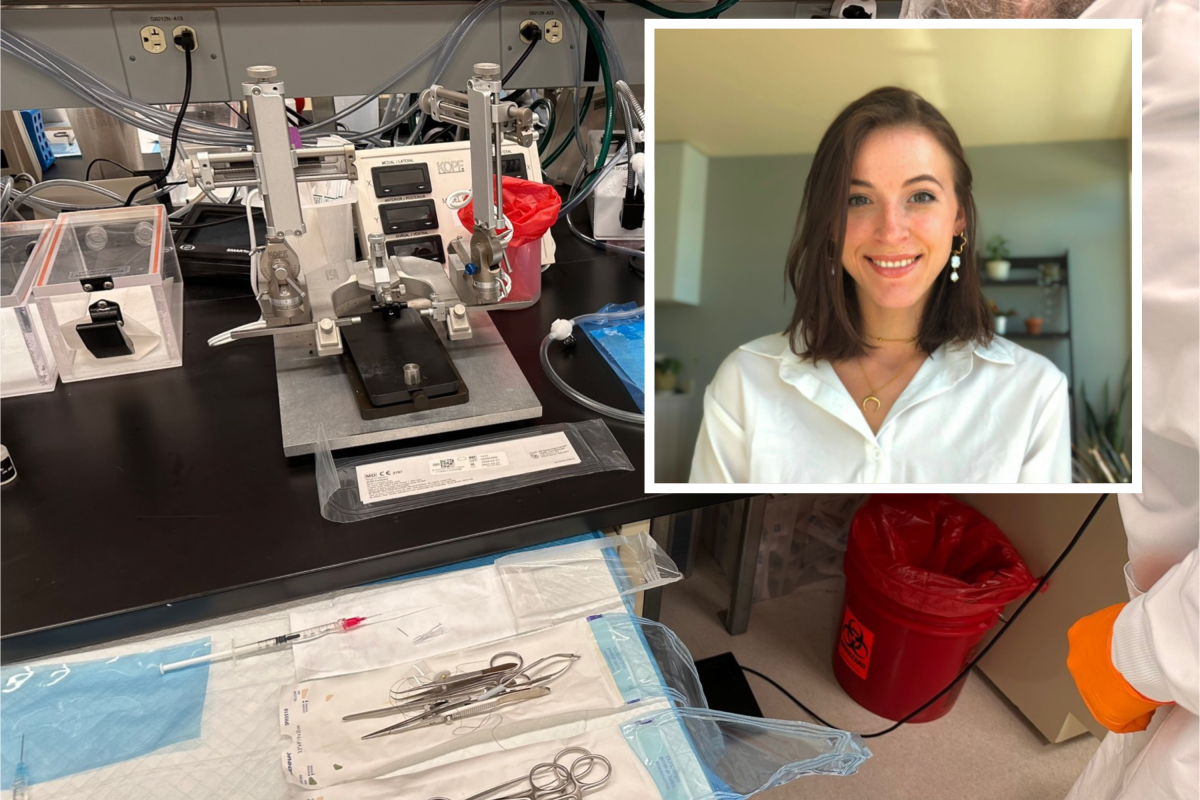President Trump’s threats of federal freezes have left scientists panicking, as they face funding cuts for critical research in areas ranging from PTSD, opioid use, cancer, infectious disease and more.
Two PhD researchers at University of California San Diego (UCSD) spoke with Newsweek about how the threat of cuts from the National Institutes of Health (NIH), and the sudden disappearance of research grants, have left the scientific community reeling.
Abbey Green, who is researching the impact of HIV and opioid use on the brain for her PhD at UCSD told Newsweek: “I feel like people are just definitely confused and worried right now, and it definitely impacts being able to focus on research if you don’t know if you’re going to be able to continue doing it.”

Jiana Cressy, Abbey Green
Jiana Cressy who is studying for her MD PhD at UCSD—meaning her studies will result in her becoming a physician as well as an expert in her research field—explores how trauma affects social behavior.
Cressy added to Green’s sentiment about widespread confusion, telling Newsweek: “I feel like people are just really concerned. People are panicking, for lack of a better word.”
The Trump Administration initially said they were freezing all federal funds until Feburary 1st. Now, there are mixed messages from the Administration on whether these funds are available or if they will be re-frozen, but Green told Newsweek that the grant both she and Cressy rely on for their studies is not currently online.
Cressy added: “It’s really, it’s frustrating. It’s a tough environment, especially for the kind of work I do, mental health research. I feel like I’ll look at predicted funding levels, and it doesn’t look good, you know. So I am afraid that this is just the beginning, and they came out just like guns blazing in the first week. But it is stressful to think, what else could happen?”

Trevor Eisner/Jiana Cressy
The grant that Green said is not currently available is known as an F-31 Diversity Grant to fund their PhD studies. Cressy explained that while people may assume a “diversity” grant only goes to minorities, it is also available to veterans and first-generation students of all backgrounds.
While other grants exist, this one, which is highly competitive, enables more people to get the funding that they need to commit to years-long research projects.
The president has rescinded his total federal funding freeze for now; however, there is still a lot of confusion over whether programs will be frozen in the next four years, and whether there will be enough individual grants to go around for researchers.
Green and Cressy also explained that the process to obtain a grant can take months if not a year, so even a brief ‘pause’ in the grant system can have a ripple effect over research funding for a long time.
Additionally, while Cressy’s lab, for example, has enough funding to continue its work for now, the lab needs to know whether its NIH grants will exist long in advance so it can prepare for the lengthy application process.
“[These] projects don’t happen in two months, right? It’s not like, I don’t know, product development, or some other industry, like, it takes years to figure out the way the diseases work and mechanisms underlying really complex things,” said Cressy.
“It’s really hard, which is why people haven’t figured it out yet, right? And so even a short pause can have detrimental effects that will stop progress for years to come.”
“This is all really important research and has the potential to really help many Americans’ lives,” said Green. “It’s sometimes foundational research, but these are really the building blocks to get those next therapies, to get those next therapeutics and to really advance medicine.
“That’s what the NIH does in funds. So it’s really sad to me to see this, this pause in progress towards these goals.”
She added: “Health is a ubiquitous thing, and at some point you’re going to get sick or have an issue, and if this research isn’t there developing new things, then it’s going to cause a lot of terrible downstream effects.”





